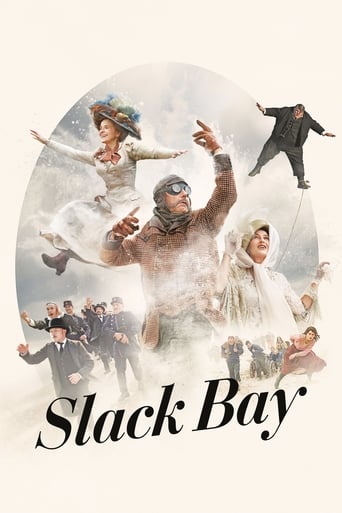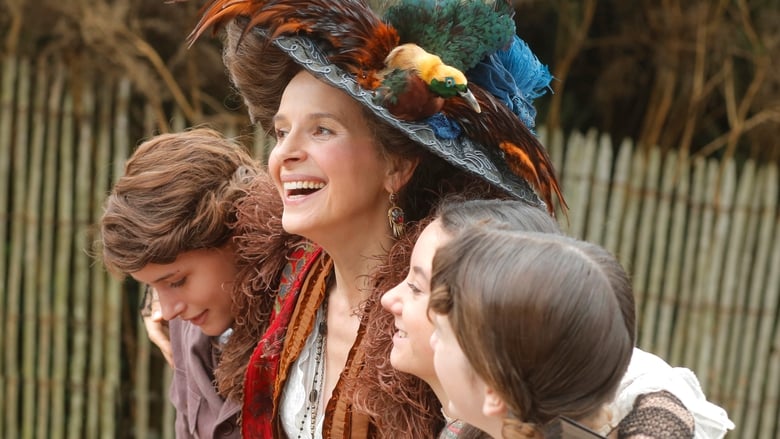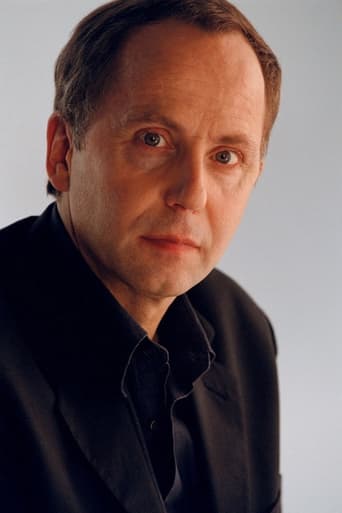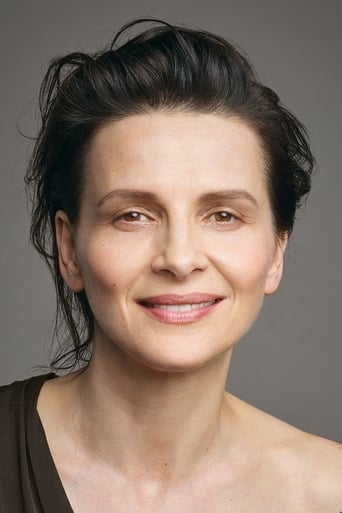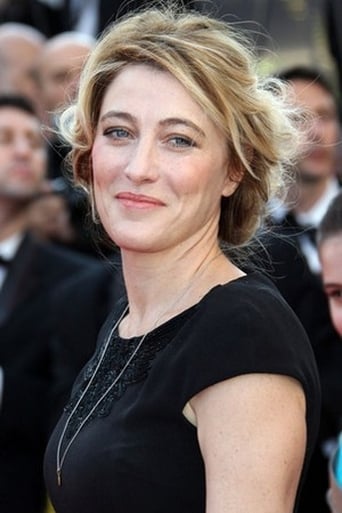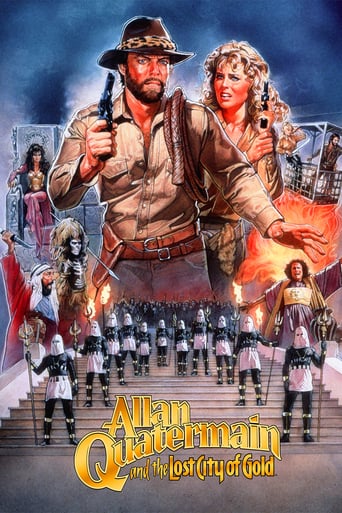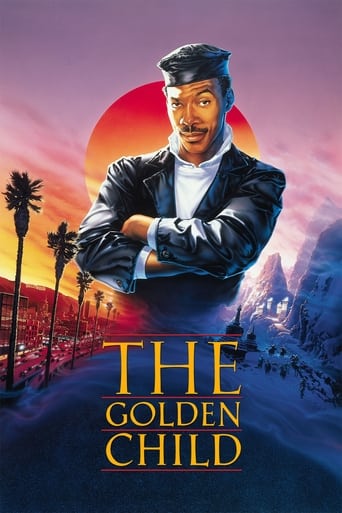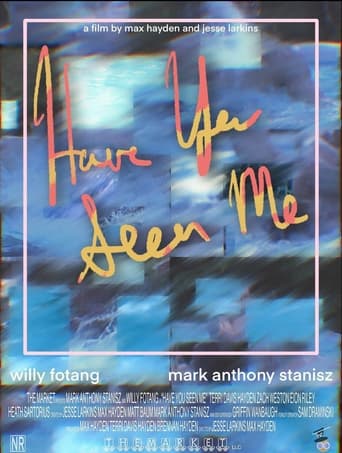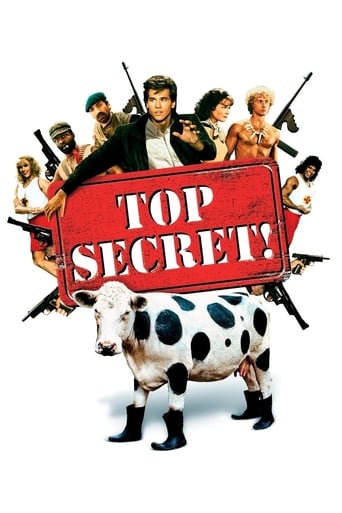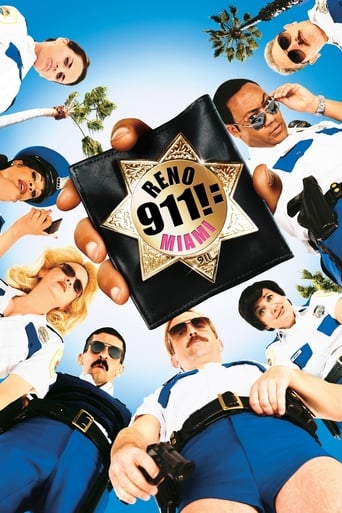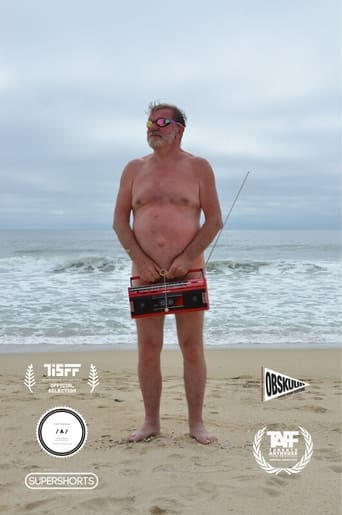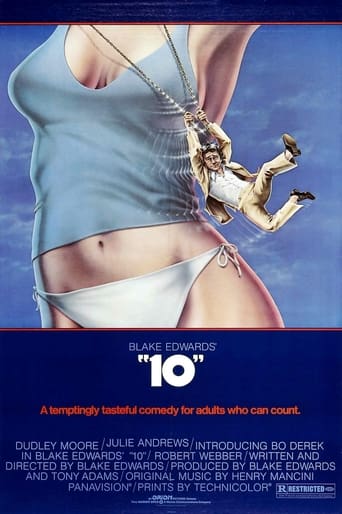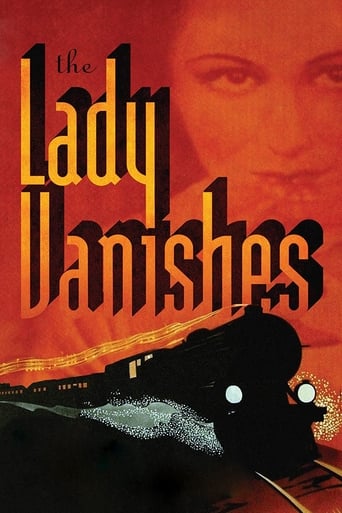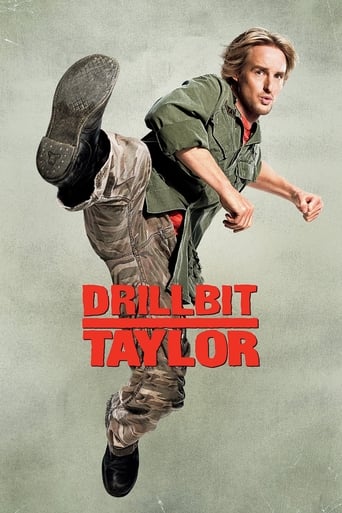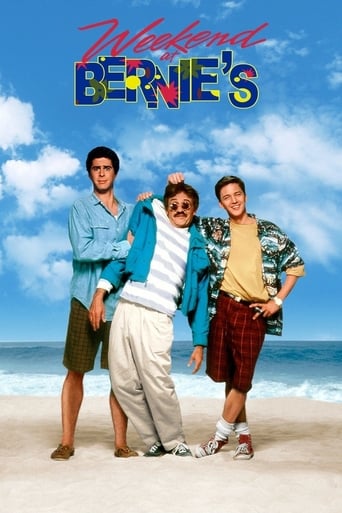Slack Bay (2017)
Summer, 1910. Inspectors Machin and Malfoy investigate the mysterious disappearances of several tourists on the beautiful beaches of Slack Bay, where a strange community of fishermen lives.
Watch Trailer
Cast


Similar titles
Reviews
ridiculous rating
Just perfect...
Instant Favorite.
Excellent characters with emotional depth. My wife, daughter and granddaughter all enjoyed it...and me, too! Very good movie! You won't be disappointed.
Somehow disappointing.Whereas "Le P'tit Quinquin" was a leap into comedy for Bruno Dumont, it was not quite the departure one would fear. Rather it seemed to be very much a Dumont film. Its amusing attributes enhanced the work. "Ma Loute", however, feels like an original theatrical comedy that is jewelled with Dumont flourishes. Unlike "P'tit Quinquin" with its humour extricated from a Dumont reality, this feels a purposely created comedy performance blackened at the edges with his dark touches and observations. It does seem as if he openly makes, and exposes, comments on society. There is not the same distance from his subjects as before. That very distance which paradoxically allowed a personal intimate contact to his films, their characters, and their landscapes. Here the audience is watching a stage performance. It lacks the surreality, natural humour, and realism of previous works. The humour is very scripted and many of the characters appear very designed and obviously performed. In 'Hors Satan' and 'Hadewijch' David DeWaele looked the part, not a parody, neither a caricature or even a performance, but there in the landscape, in the wind, timeless and magical.In "Ma Loute" some recurring features of his style don't work in that specifically Dumont way. Instead, the surreality loses its very essence as the inspector floats about. Appearing plastic and intentional, the fingerprints of the director and the script's words are on the screen. The characters and scenes feel as if existing outside of the perceived reality and therefore no longer surreal. The big change here is the perspective and the enforcement of views. Even including "Hadewijch", previous films had a strength where little or nothing was said. Direct moral instruction, opinion or values were absent, rather they were just shown as they are in reality, or on even a spiritual plane. Here social comment appears to be made. Pastiche and parody flaunted as if it were a play. It is as if Dumont is under the influence of a thespian or theatre director, whereas before he was probably alone with his ideas. The humour also feels very scripted. Slapstick, vaudevillian performances, caricatures of the haute bourgeoisie, peasantry, the priest and teenage love are all very entertaining. Luchini's performance and character is adorable. Yet these are not the things I have come to love in Dumont's work. The added elements of the boy-girl ambiguity and the cannibalism are indeed effective, but feel wedged in. The delightful Laurel and Hardy policemen are as lovable as they are hilarious. "Malfoy, malfoy, malfoy...."Personally, Juliette Binoche is generally quite unappealing. Even to the extent that a mild tedium envelopes me when her name appears on opening credits. However, here her over the top performance is quite delicious. She overshadows the previous wonderfully floral performance of Valerie Bruni-Tedeschi (sister to the notorious Carla Bruni).Of course the landscape and his framing of it, is exceptional and genius. Sometimes it feels unreal and crafted. Yet he also makes the sea, sky and land appear open as it would in our 360° reality, unrestricted by the camera lense or the screen. There are plenty of Dumont images within. One that hit me is the wonderful shot of the father, 'L'Eternel', in the sky/landscape. His impossible eyes somehow reflecting and contrasting the blue open heavens and the sand dunes. Allowing myself some grieving, I do however believe this to be an excellent film with wonderful ideas, performances and of course directing/photography. Dumont has not lost his magic touch. It is still here. The film is just simply different to his back catalogue and therefore, as I yearn for more of Dumont's established style, this pinches my enjoyment of this otherwise delightful performance piece.
The three heavy hittters were the principal draw here and they don't disappoint. Fittingly - they are, after all, aristos of French cinema - they play aristos albeit seriously inbred and the overriding impression calls to mind one of those charity events in yesterday's England when theatrical 'royalty' let its hair down and enjoyed itself -the Coward number Three Juvenile Delinquents comes to mind. Fabrice Luchini is the most outre doing everything but scraping the ground with his knuckles whilst the other two are more nuanced. Throw in a pre-Laurel and Hardy duo - we are talking 1910 - here and we have a sort of Northern bouillabaisse where anything goes. The trick of course is to play it with a straight face which all hands do to a fare-thee-well. Not for everyone.
The centennial anniversary of the breaking of WWI was an opportunity for several books to be written and films to be made (most of them documentaries) not only about the war itself, but also about the years that preceded it. Those were the finals years of a period that had started at the end of the Franco – Prussian war in 1870 and had seen a period of more than four decades of peace, never encountered in the written history of Europe. For many people living it those times La Belle Epoque seemed to signal an apparent stability based on the balance between the power of a few Empires and Republics. A middle class appeared in Europe allowing for economic development, arts flourished, and life was good for many. Yet, the political tensions were present at the level of the relations between the big powers in Europe, and many of the national societies were sick. Which is exactly the theme of Bruno Dumont's film 'Ma Loute'.Dumont is one of the masters of a cinema sub-genre which I will call 'films about degenerated people' (or social, or family relations, or a combination of these. Marc Caro and Jean-Pierre Jeunet 's Delicatessen is another example of the genre, so is Dogtooth by Greek director Yorgos Lanthimos. 'Ma Loute' not only takes the genre one step ahead because of the quality of the execution, but also provides political and historical dimensions by locating the story of mysterious disappearances, social conflict between the rich tourists and the poor fishermen and a love story which is impossible for many reasons in a precise place – the North-West of France close to Calais and time – the end of La Belle Epoque.Viewers should be warned that this is no easy film to watch. 5% of the audience walked out the theater I was in. Among those who stayed I suspect that half disliked what they have seen, with the negative reactions between considering the theme disgusting to ridiculous. The acting style is also very heavily and intentionally exaggerated. It is the description of sick families, of hateful relations between classes, of a non-functional society at all levels. The fact that all these seem to get some rational explanation may satisfy for a moment, but then the film slides in a combination of grotesque and fantastic (the levitation scenes) that is close to genial. Watching fine actors as Fabrice Luchini, Juliette Binoche,or Valeria Bruni Tedeschi is of course a delight but do not expect them to act like in any other movies that you have seen with them in the past. The young couple acted by Brandon Lavieville and Raph both at their first film add some level of innocence, but all is under the sign of the deformed mirrors here.'Ma Louche' is a very different kind of cinema experience, viewers take risks watching it, and they are rewarded with a surprise which according to taste and approach can be very good or very unpleasant.
"Ma Loute" is a film but what it really is is theft and abjection, it is the result of the cultural misery and of the intellectual mischief and vacuity taking place in an era where history is at a standstill. This film is yet another proof of the power of the media and marketing upon the brain washed masses of consenting slaves and consumers in the new world order. When thousands of minorities are actually the overwhelming majority of the human population on this planet, when less than one percent of the population owns more than 99 % of the assets, when futures and junk bonds, « Sex and the city » and publicity are the pinnacle and ultimate goal and purpose of the whole circus, it is time for terrorism, incest, « gender debate», gluten free diet or cannibalism to justify yet another reason to go on as usual. In this particular instance what is somewhat interesting in this display of ridicule and emptiness is to wonder about the motives of the producers and of the distributors of such utter despicable lack of respect for the public and past authors. The only explanation, the only way to read this film is, I presume, to comprehend it as a form of fascist propaganda. The director intends to depict a decadent society at the beginning of the 20th century in France where the poor and the rich conjure in their respective and shared perversity and degeneration, doing so the authors of this project wish to confront us with the mirror of our own abyssal dismay and uncertainties about post-Christian western civilization. Cannibalism being the least horrific detail here, incest is worse, not because of the sufferings of the victims ( Binoche makes her worst performance in vain) or because of degenerate off-springs, but because it is assumed as an acceptable fact of life and a normal process within social classes. All the same there are too many signs throughout the film that both the director and the main actors are really desperate to obtain cultural status and recognition in order to please heavily subsidized institutions and their privileged public. The result is a crime: theft, theft of the work of Chekov. Over the last forty years there have been so many theatre productions of Chekov in France that it has become some kind of redemption or absolution for all the sins and poor invention of the cultural elites and their subordinates, this film is much less than yet another one of those, it is hardly a fart. Towards the end, the film shows a certain inspector Machin shot down for inflating himself a little too much...very enlightening... the film blows itself up too. Terrorists do the same sometimes, I can't help wondering why they go on doing it.

